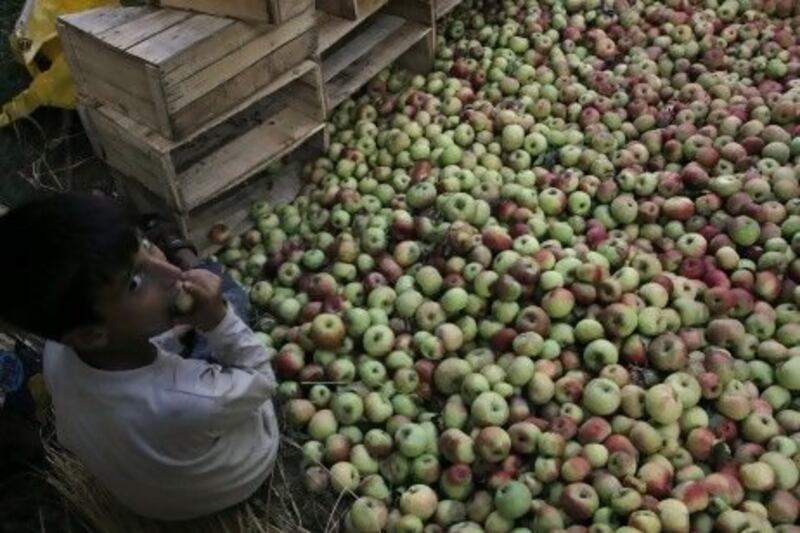NEW DELHI // Unseasonably heavy rainfall and thunderstorms in northern India are making farmers nervous, threatening this year's crop of apples and mangoes and driving up prices for basic foodstuffs.
Parts of northwestern and eastern India received up to 18 millimetres of rainfall last week, with strong winds blowing mango blossoms off trees in Uttar Pradesh and freak hailstorms stripping immature apples from their branches. "The crops are in jeopardy," said Indranil Sarkar, the vice president of operations for Skymet Weather Services, in Noida, Uttar Pradesh.
In the state of Andhra Pradesh, the unpredictable weather has delayed this year's mango harvest, which traditionally starts in March.
The arrival to the market of Kesar mangoes from the western state of Gujarat, the second-most popular variety in India, has been delayed by almost six weeks - the second consecutive year that bad weather has delayed the harvest. Last year, 33 million kilograms of the fruit were brought in, down from 43 million kilograms the previous year.
India annually produces about 54.2 per cent of the world's mangoes. Four years ago, it exported 83,000 tonnes of mangoes. According to agricultural authorities, it exported only 59,000 tonnes of the fruit last year.
The UAE is the biggest importer of Indian mangoes, accounting for nearly half of India's foreign market.
The inclement weather also has affected this year's wheat crop, one of India's staple foods and biggest exports.
The unusually heavy rainfall has waterlogged fields, delaying the harvest and making some of the crop unfit for human consumption. Farmers have been forced to sell their spoiled wheat as cattle fodder at much lower prices.
Saturated wheat fields have been reported in the states of West Bengal, Gujarat and Punjab, India's biggest producer of the grain.
India is the world's second largest producer of wheat, last year harvesting 88.31 million tonnes.
sbhattacharya@thenational.ae
Follow
The National
on
[ @TheNationalUAE ]
& Surya Bhattacharya on
[ @SuryatapaB ]





